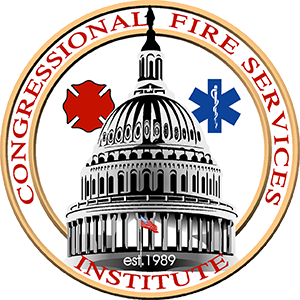Contact Your Member
Every American has two elected senators from their state and one representative in the House of Representatives from their district.
Find My Senators
Click Here and sort the list by state to find your senators.
Find My Representatives
Click Here to type in your zip code and find out who your Congressperson is.
Are My Members on the Fire Caucus?
Once you find your representatives, click here to see if they are in the caucus.
If they are not, scroll down the page to learn how to write them a letter or email asking them to join the caucus!
Write a Letter to Your Members of Congress
Advocacy Meetings
Dear Senator/Representative Lastname:
My name is [NAME] and I currently serve as [YOUR JOB TITLE] of the [FIRE DEPARTMENT NAME]. I am writing today to request [A VIRTUAL / AN IN-PERSON] meeting to discuss [ISSUES: briefly list the issues you would like to discuss].
I will be available to meet with you {if requesting in-person add: at your [LOCATION] office} on [DATES YOU ARE AVAILABLE] and would welcome the opportunity to speak with you and your staff about these issues.
If you have any questions, please don’t hesitate to contact me by email at [YOUR EMAIL HERE] or phone at [YOUR PHONE NUMBER]. I look forward to hearing from you. Thank you for your consideration.
Sincerely,
Firstname Lastname
Job Title, Fire Department Name
Getting Around Washington, D.C.
WASHINGTON DC METRO: The Metro is an easy option for getting around D.C. You can purchase a metro card in the metro station and add funds via credit/debit card or cash. Metro’s website can help you plan your trip.
Tap your card on the entry machine to gain access to the Metro train platform and make sure to have your card handy to tap out when you exit the metro station.
Click here to watch a quick video about the Metro system.
RIDESHARE: Rideshare is also easy in D.C. Both Lyfts and Ubers are plentiful. Costs are approximately $20 when traveling inside D.C.’s borders. Costs frequently spike during rush hours in the morning (7am-10am) and evening (4pm-7pm), as well as if you are traveling outside the District. (e.g. to MD or VA).
